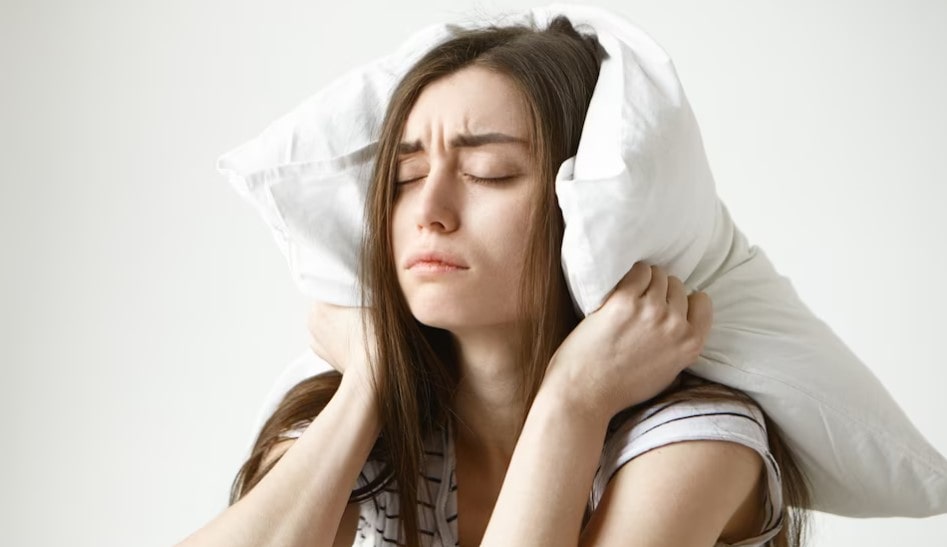Sleep is an essential aspect of our lives, affecting our overall well-being and functioning. However, many individuals struggle with various sleeping problems that can disrupt their quality of life. In this article, we will explore science-backed life hacks that can help solve your sleeping problems and improve the quality of your sleep.
Adequate sleep is crucial for our physical health, mental well-being, and cognitive functioning. Unfortunately, many people experience difficulties when it comes to falling asleep, staying asleep, or achieving restful sleep. These issues can lead to daytime drowsiness, reduced productivity, mood disturbances, and even long-term health problems. Thankfully, there are several effective strategies that can help address these sleeping problems.
Establishing a Sleep Routine

One of the most effective ways to improve sleep is by establishing a consistent sleep routine. Our bodies have an internal clock, known as the circadian rhythm, which regulates our sleep-wake cycle. By sticking to a regular sleep schedule, we can align our body’s natural rhythm and promote better sleep.
Start by setting a fixed bedtime and wake-up time, even on weekends. This helps regulate your body’s internal clock and trains it to recognize when it’s time to sleep. Additionally, creating a relaxing bedtime routine can signal your body to prepare for sleep. Consider activities such as taking a warm bath, reading a book, or practicing gentle stretching exercises. It’s crucial to avoid electronic devices before bed as the blue light emitted can interfere with melatonin production, a hormone that regulates sleep.
Optimizing Your Sleep Environment

The environment in which you sleep plays a significant role in the quality of your sleep. Ensure that your bedroom is a comfortable and conducive space for rest and relaxation.
Start by creating a dark environment by using blackout curtains or an eye mask. Darkness stimulates the production of melatonin, promoting better sleep. Additionally, invest in a suitable mattress and pillows that provide adequate support and comfort for your body. Experiment with different pillow types and mattress firmness levels to find what works best for you.
Controlling noise and temperature is also crucial. Consider using earplugs, white noise machines, or a fan to drown out disruptive sounds. Maintain a comfortable temperature in your bedroom, as cooler temperatures are generally more conducive to sleep. Use a fan or adjust the thermostat to create a cool and pleasant sleeping environment.
Managing Stress and Anxiety

Stress and anxiety can significantly impact our ability to fall asleep and stay asleep. Therefore, managing these factors is essential for improving sleep quality.
Practice relaxation techniques before bed, such as deep breathing exercises or progressive muscle relaxation. These techniques help calm the mind and relax the body, making it easier to transition into sleep. Another helpful strategy is journaling. Writing down your thoughts, worries, or to-do lists before bed can help alleviate anxiety and clear your mind.
If stress and anxiety persist and significantly affect your sleep, consider seeking professional help. A therapist or counselor can provide guidance and support in managing stress and anxiety, ultimately improving your sleep.
Improving Sleep through Exercise

Regular physical activity has numerous benefits, and improving sleep quality is one of them. Engaging in exercise during the day can help regulate your sleep-wake cycle and promote better sleep.
Find an exercise routine that suits your preferences and fitness level. It can be as simple as going for a walk, cycling, or participating in a group exercise class. Aim for at least 30 minutes of moderate-intensity exercise most days of the week. However, avoid intense workouts close to bedtime, as they may stimulate your body and make it harder to fall asleep. Instead, try to schedule your exercise session earlier in the day to allow your body enough time to wind down before sleep.
Mindfulness and Meditation

Practicing mindfulness and meditation can be effective tools for calming the mind and preparing it for sleep. These techniques involve focusing your attention on the present moment, letting go of intrusive thoughts, and promoting relaxation.
Before bed, set aside a few minutes to practice mindfulness. Find a quiet and comfortable spot where you can sit or lie down. Close your eyes and focus on your breath, observing each inhalation and exhalation. If your mind starts to wander, gently bring your attention back to your breath. You can also use meditation apps or guided sessions specifically designed to promote sleep.
The Role of Diet in Sleep Quality

Your diet and eating habits can significantly impact your sleep quality. To improve your sleep, it’s important to make mindful choices about what and when you eat.
Avoid consuming stimulants like caffeine and nicotine close to bedtime, as they can interfere with your ability to fall asleep. Instead, opt for herbal teas or warm milk, which contain natural compounds that promote relaxation and sleep.
Maintaining a balanced diet that includes whole grains, fruits, vegetables, lean proteins, and healthy fats can positively affect your sleep. Additionally, certain foods contain sleep-promoting compounds, such as kiwi, cherries, almonds, and turkeys. Incorporate these foods into your diet to potentially enhance your sleep quality.
Utilizing Natural Sleep Aids
In addition to lifestyle modifications, there are natural sleep aids that can assist in improving sleep quality. These aids can help relax the mind and body, making it easier to fall asleep and stay asleep.
Herbal remedies and supplements like valerian root, chamomile, or melatonin can be beneficial for those struggling with sleep. However, it’s important to consult with a healthcare professional before starting any new supplements to ensure they are safe and suitable for you.
Aromatherapy with essential oils like lavender or chamomile can also promote relaxation and better sleep. Diffuse these oils in your bedroom or add a few drops to a warm bath before bedtime. Additionally, trying relaxation techniques like yoga or tai chi can help reduce stress and promote better sleep.
Creating a Sleep-Friendly Lifestyle
Adopting a sleep-friendly, as it can interfere with your ability to fall asleep at night. If you do need to nap, keep it short (around 20-30 minutes) and schedule it earlier in the day.
Establish a wind-down period before bed, where you engage in relaxing activities that prepare your body and mind for sleep. This can include reading a book, taking a warm bath, practicing gentle stretches, or listening to calming music. Avoid stimulating activities or intense discussions before bed, as they can increase alertness and make it harder to fall asleep.
Make sleep a priority in your daily life. Recognize the importance of adequate sleep for your overall health and well-being. By prioritizing sleep, you can make necessary adjustments to your schedule and create a conducive sleep environment.
Conclusion
Sleeping problems can significantly impact our quality of life, but there are science-backed strategies to improve sleep. By establishing a sleep routine, optimizing your sleep environment, managing stress, incorporating exercise, practicing mindfulness, making mindful dietary choices, utilizing natural sleep aids, and adopting a sleep-friendly lifestyle, you can overcome these issues and enjoy restful and rejuvenating sleep.
Remember, everyone’s sleep needs and preferences may differ, so it’s important to experiment with these strategies and find what works best for you. If your sleeping problems persist despite trying these hacks, it’s advisable to consult a healthcare professional for further evaluation and guidance.
FAQs
1. Can sleeping problems be solved without medication?
Yes, many sleeping problems can be effectively addressed without medication. By implementing lifestyle changes, optimizing your sleep environment, managing stress, and adopting healthy sleep habits, you can significantly improve your sleep quality.
2. How long does it take for sleep routines to show results?
Establishing a consistent sleep routine may take some time for your body to adjust. It’s recommended to stick to the routine for at least a few weeks to allow your body to adapt and for you to observe noticeable improvements in your sleep quality.
3. Are natural sleep aids safe to use?
Natural sleep aids, such as herbal remedies and essential oils, can be safe when used as directed. However, it’s important to consult with a healthcare professional before trying any new supplements or remedies, especially if you have underlying health conditions or are taking medications.
4. What if my sleeping problems are caused by a medical condition?
If you suspect that a medical condition is contributing to your sleeping problems, it’s crucial to consult a healthcare professional. They can evaluate your symptoms, conduct necessary tests, and provide appropriate treatment or referral to a specialist if needed.
5. Can I catch up on lost sleep?
While it’s possible to make up for occasional sleep deprivation, chronic sleep loss cannot be fully compensated for by sleeping more on weekends. Consistency in maintaining adequate sleep is essential for optimal functioning and overall health.









